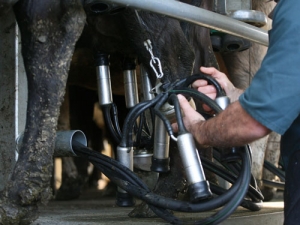Federated Farmers say sharemilkers urgently need to go through partial budgets with their farm owners.
The chair of Federated Farmers’ Sharemilker Employers’ Section, Tony Wilding, says in many cases good, open and honest discussion about what costs can be cut or shared differently will help both party’s bottom lines in the long term.
“Acting fairly and with consideration will enhance both the farm owner’s and the sharemilker’s reputation, with benefits further down the line, even if this sometimes means revisiting their contract,” he says.
“There needs to be clear communication and it needs to be reasonable. There may be a need to involve the bank or other advisors.”
“This whole partnership approach to this downturn will get the best result. If the business partnership is strong then both parties are in a better position with a shared plan.”
Wilding says it is vital to retain the talent that is currently in the sharemilking industry.
“I am concerned, though, that in tight times there will be some farmers who go to ground and don’t like asking for help. I’m telling them that there are people out there who can help both sharemilkers and farm owners, sharing ideas, talking about farm systems and helping with re-budgeting. That starts with other farmers in the community and also the Rural Support Trusts around the country.”
Neil Filer, Federated Farmers Sharemilkers’ Section, says there is pressure on sharemilkers and owners with tight equity and minimal loan guarantees.
“Many of the newer sharemilkers, and some of the more seasoned, will have had no experience to get them through these very tight times. I suggest they sit down with their farm owner and go through their contract, line by line, to see if it is still a viable document.”
“There are sharemilkers operating on agreements that used $6 or more as the base rate for their negotiations. In the current low milk price environment these sharemilkers are at real risk,” he says.
“We can’t tell them where the costs should lie, because each business is different. But where a farm owner or sharemilker has worked their agreement on what has turned out to be unrealistic numbers, we’re telling them the time to act is now.”
Filer says the risk does not apply to all sharemilkers.
“The 21% net rule in the Variable Order Sharemilking Agreement will look after the families sharemilking 300 cows or fewer. The longer term sharemilkers who had exposure to the $8 payout years should have a buffer of equity to see them through what we all hope is a short term downturn.”
“The ‘at risk’ sharemilkers will be those milking larger herds and have costs built into their agreements that can only be met through debt and this is not a long term solution.”
Filer says that this is the nature of sharemilking, there are good times and bad times, but those sharemilkers operating with unrealistic contract terms risk the whole farm business.
“I back Tony 100% in getting both parties around the table and so I’m asking all those sharemilkers out there to let their farm owners know the reality of their situation before the sh*t hits the fan. It’s far better to be proactive than reactive,” Filer says.


















